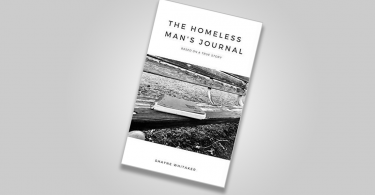At the opening let me make one thing clear: as much as I may have previously wished and tried to be, I am not a fan of the over-lauded Hilary Mantel – overlord of histor
At the opening let me make one thing clear: as much as I may have previously wished and tried to be, I am not a fan of the over-lauded Hilary Mantel – overlord of historical fiction and darling of the middle-class intelligentsia that she is.
Certainly, hers is an impressive feat. To be the only British novelist to have won the Man Booker Prize twice, for two books in the same series, and as a formerly little-known female writer no less, is nothing to be sneered at. And yet, somewhat apologetically, I still do.
Assassinating the Iron Lady
But let’s begin at the end for the time being. Mantel’s short story and accompanying interview espousing her deep-seated wish to assassinate former PM Margaret Thatcher, has recently raised all kinds of umbrage from those fans who had previously held her most dear.
Lord Timothy Bell, to take a vocal example, went so far as to call for her to be investigated by the police, and Stewart Jackson, the Conservative MP for Peterborough, in a self-righteous fit of ignominy labelled her “sick and deranged.” Among their issues with the short story published by The Guardian, seemed to be that the subject was “in bad taste.”
Well, to them I say: So what? But please don’t misunderstand me. By this statement I am not advocating a laissez-faire attitude to literature, but nor am I suggesting that these comments should be taken lightly.
Literary Censorship
I wonder whether the people who are so aggrieved by Mantel’s so-called descent into “bad taste” have stopped to consider quite what it is they’re advocating in its place. Would they, for instance, have been of the type who sought to ban D.H. Lawrence’s Lady Chatterley’s Lover when it was first released?
Let’s go further. Would they have called for Tolstoy’s War and Peace to be removed from print for encouraging the removal of Napoleon? Would they, perhaps, even have been among the powers-that-be who would have burned Mikhail Bulgakov’s Master’s manuscript, if given half a chance?
Put into this context, the issue becomes blindingly clear. Big Brother is watching, and of this we are all aware. Rushdie’s Satanic Verses earned him a Fatwa, yet transparently damaging drivel such as Fifty Shades of Grey earned its frighteningly anti-feminist author millions in disposable income.
There is a frightening disconnect here between society’s advocation of mass-produced fiction, and its discouragement of original and controversial ideas.
Freedom of Publishing
Mantel’s attack on a Prime Minister who was to politics as marmite is to tastebuds, is a considered and thoughtful comment on a woman who, with one hand bolstered the economy, and with the other drove millions out of work and left many families languishing today in third and fourth generation poverty.
The darker recesses of an individual’s thoughts may be considered bad taste to some, but freedom of publication is a right we should cling to far more dearly, than to a certain factions’ propensity to take offense when rattled from their coddled cages.
I said at the beginning that I am not a fan of Hilary Mantel, and truly I am not. Personally, I find historical fiction to be a failure on both the part of the historian and of the writer. The story is not her own, the writing is hardly virtuosic, and the history would be far better discussed within the musty pages of an historical textbook, than between the shiny covers of this year’s bestseller.
But, for all of the qualms I have with the double-Booker award winner, I applaud her success and I will defend hers and every other writer’s – nay, person’s – right to cause controversy wherever and whenever they see fit.
Literary fiction is dying. Mass-produced sadomasochism ties knots around our brains, and forcibly beats us into submitting to the societal view that reading for pleasure is the highest form of learned relaxation; and therefore should be accepted and encouraged no matter the calibre of the novels we digest.
This is a fallacy.
Encouraging Education
Words are power. Ideas have influence. For previous generations in the west, and for existing generations elsewhere today, the battle for education was and still is fought.
Why? Because with education comes an understanding of the world. It is the key to unlocking our potential as human beings, and in the UK at least, our society is based on J.S. Mill’s guiding principle, that the majority has no more right to silence a single man’s opinion, than that man would have to silence the opinion of the majority.
Male-centric pronoun aside, this is the freedom that’s at stake when Lords and MPs deign to condemn a work of fiction for being, in their opinion, “bad taste.”
They must not succeed in proscribing what constitutes “good” literature. Personally, I would like to see Fifty Shades of Grey removed from bookshelves the world over, but that is not my decision to take, and nor is it anyone else’s.
So, whether they be Lords or politicians, readers of historical fiction or writers of controversial literature, one truth must stand above all else for all of us: as the Master discovered, no matter the danger of their ideas, manuscripts do not burn. And nor should they be silenced.
What do you think? Have your say in the comments section below.








